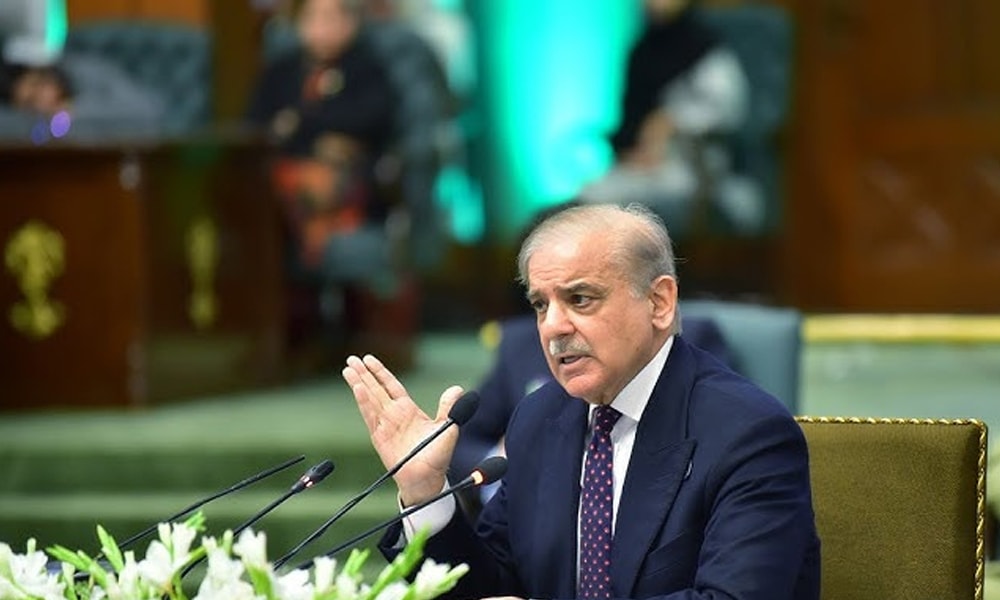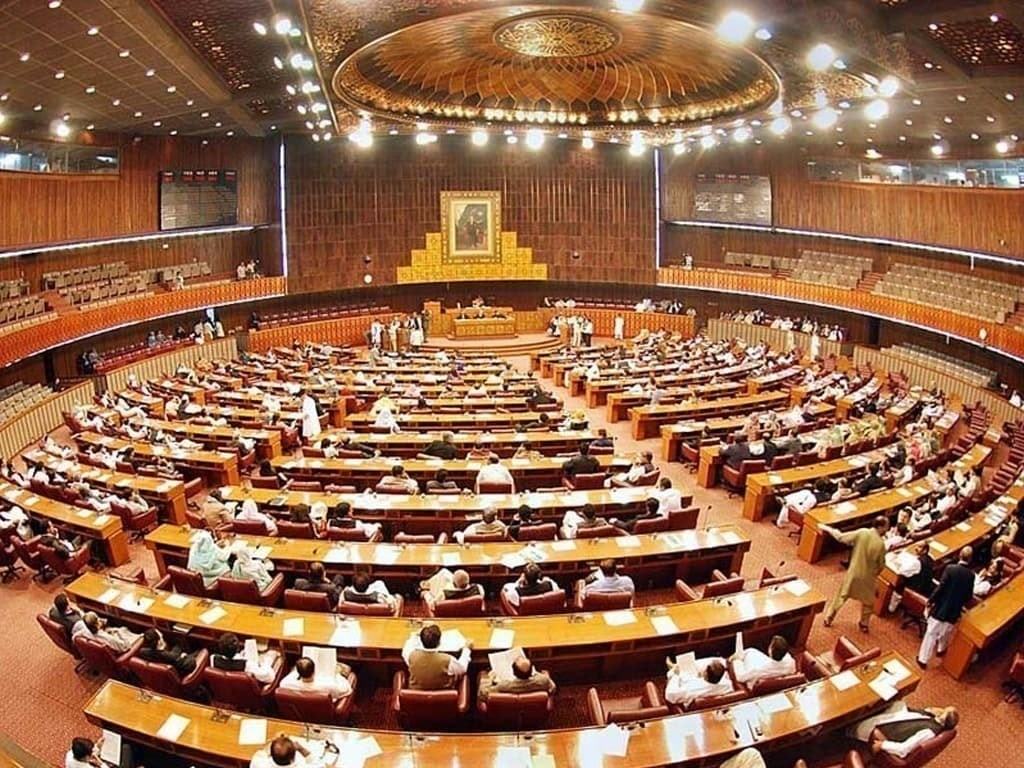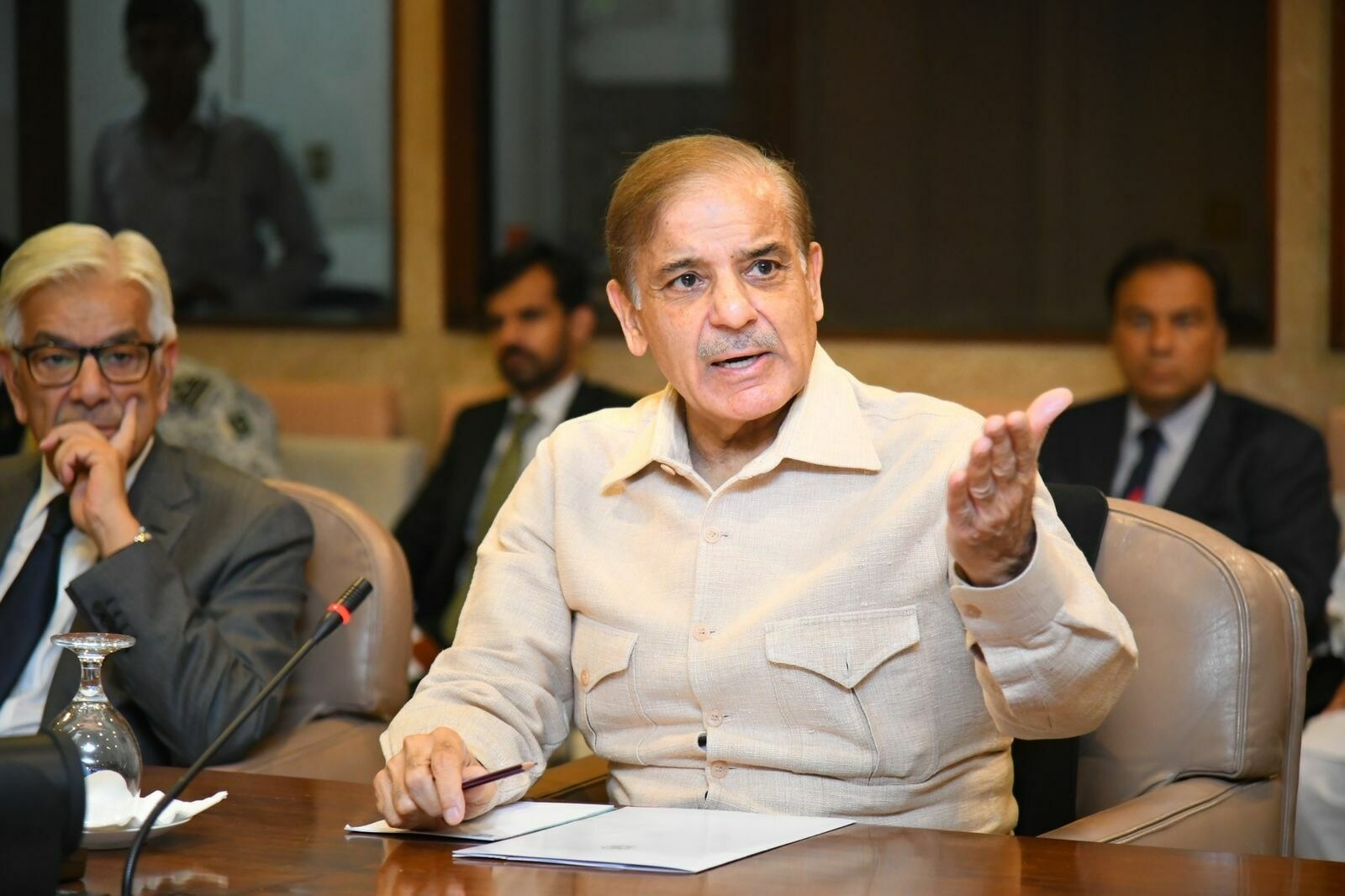PTBP Web Desk
Prime Minister Shehbaz Sharif has called on the Afghan interim government to take firm action against the Tehrik-i-Taliban Pakistan (TTP) and other terrorist groups operating from Afghan soil. He emphasized that lasting peace in the region depends on Afghanistan’s willingness to rein in militant factions that threaten stability within and beyond its borders.
Speaking at the Inter-Parliamentary Speakers Conference (ISC) held in Islamabad, the Prime Minister said, “Afghanistan must understand that lasting peace could only be realized by reining in TTP and other terrorist groups operating from Afghan territory.”
The conference, hosted by the Senate of Pakistan, was initially planned as a three-day event (10–12 November) but was later reduced to two days due to a Senate session related to the passage of the 27th Constitutional Amendment.
During his address, PM Shehbaz Sharif recalled recent border incidents in which Pakistani security posts were attacked from the Afghan side. “When our border posts were attacked last month, our response was firm and decisive, teaching an unforgettable lesson to those who attacked Pakistan,” he stated.
His comments came in the backdrop of renewed tensions along the Pakistan-Afghanistan border, where militant groups like the TTP have carried out cross-border assaults in recent months.
The Prime Minister reiterated Pakistan’s long-standing position that a peaceful and stable Afghanistan is essential for regional connectivity, trade, and development. He warned that the continued presence of militant networks within Afghanistan poses a threat not just to Pakistan but to the entire region’s peace and progress.
Shehbaz Sharif stressed that Afghanistan holds the key to regional connectivity, prosperity, and development. “A peaceful Afghanistan is vital for the progress and stability of South and Central Asia,” he remarked.
The Prime Minister acknowledged the role of Turkey and Qatar in facilitating peace talks between Pakistan and the Afghan Taliban regime, commending their diplomatic efforts to promote dialogue and understanding.
While focusing primarily on security and peace, Shehbaz also touched upon the broader implications of stability in Afghanistan for trade corridors and energy cooperation in the region, including the potential benefits to initiatives like the China-Pakistan Economic Corridor (CPEC).
In a powerful message about Pakistan’s peace narrative, the Prime Minister said, “Having won the war, we now need to win peace through sincere and honest efforts.”
He reflected on the true value of peace, saying that its importance is most profoundly felt when nations are faced with conflict. “Pakistan too has encountered this turbulence, both directly and indirectly, but we have remained resolute in our quest to maintain peace and tranquillity,” he added.
The Prime Minister reaffirmed Pakistan’s commitment to diplomacy, dialogue, and development, emphasizing that sustainable peace requires political will and regional cooperation.
Although PM Shehbaz did not elaborate in detail on Pakistan’s ties with China, he highlighted that the China-Pakistan Economic Corridor (CPEC) has now entered its second phase, focusing on industrialization, energy cooperation, and regional trade.
“Pakistan’s efforts at home and abroad are guided by the conviction of shared prosperity,” he said, adding that the country believes in multilateralism and global engagement.
Shehbaz reaffirmed that Pakistan is open to working with all international partners, including the European Union, the United States, Japan, the Middle East, and Saudi Arabia, to achieve peace and prosperity.
PM Shehbaz also highlighted the crucial role of parliaments in advancing peace and development. “Parliaments are the custodians of the people’s will, and they must honour public expectations to bring about collective improvement in their lives,” he said.
He encouraged parliamentary diplomacy as a means to bridge divides and promote mutual understanding among nations.
Chairman Senate Yousaf Raza Gilani, addressing the same conference, echoed the Prime Minister’s call for peace and cooperation. He said, “Peace, security, and development are inseparable pillars of progress.”
The ISC was held under the theme “Peace, Security, and Development.” Gilani emphasized that without peace and security, no nation can prosper, and without development, peace remains fragile.
He noted that the world is witnessing unprecedented instability driven by wars, economic shocks, climate change, and technological disruptions. “Peace is unravelling before us—from Gaza to Sudan to Occupied Kashmir,” the Senate Chairman observed.
Chairman Gilani urged the international delegates to adopt a broader and inclusive understanding of security that includes economic resilience, environmental sustainability, food and water security, and digital integrity.
He also highlighted Pakistan’s maturity and restraint in dealing with provocations on its eastern and north-western borders, saying, “We have consistently extended the hand of dialogue, for peace is a two-way street that requires reciprocity.”
The Senate chief further stated that parliaments are not bystanders in the pursuit of peace and prosperity but “drivers of trust, builders of consensus, and voices of the people when the world grows uncertain.”
Gilani encouraged the ISC delegates to move beyond promises and deliver “bold, implementable solutions” that reflect the diverse experiences of participating nations.
The Inter-Parliamentary Speakers Conference provided a platform for discussing shared global challenges and opportunities for cooperation in peace, security, and sustainable development. Both PM Shehbaz Sharif and Chairman Gilani emphasized that peace in the region—especially in Afghanistan—is the foundation for collective progress.
Their joint call for unity, dialogue, and mutual respect resonated with the conference’s central message: that nations must work together to resolve conflicts, foster cooperation, and ensure that future generations inherit a safer, more stable world.




